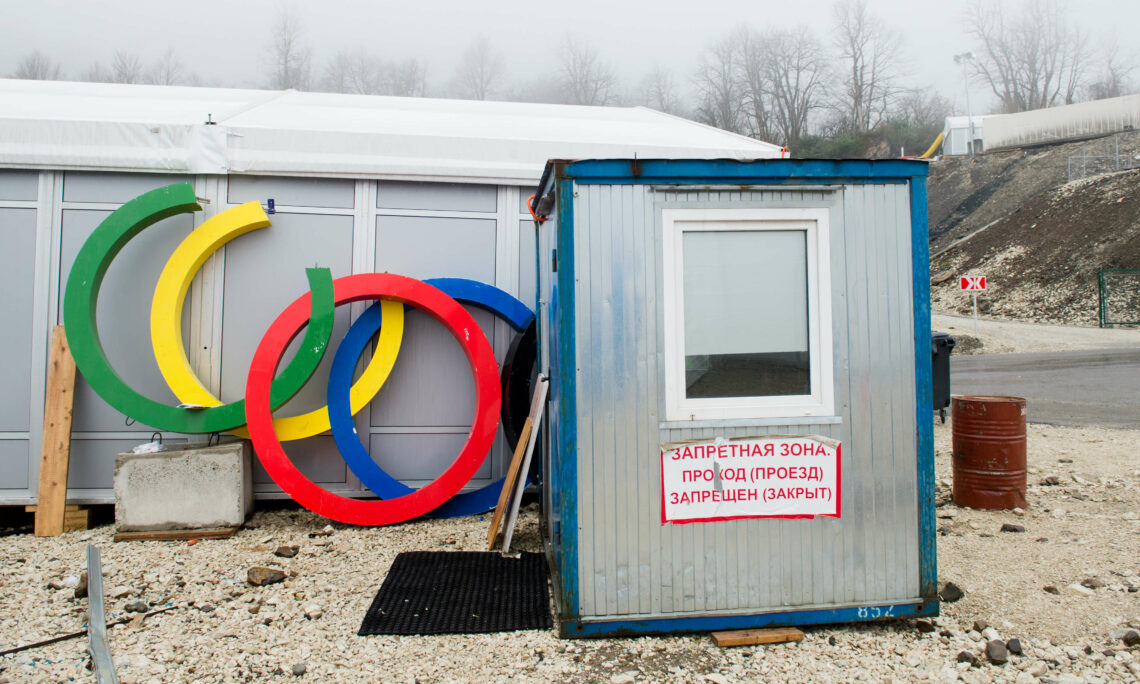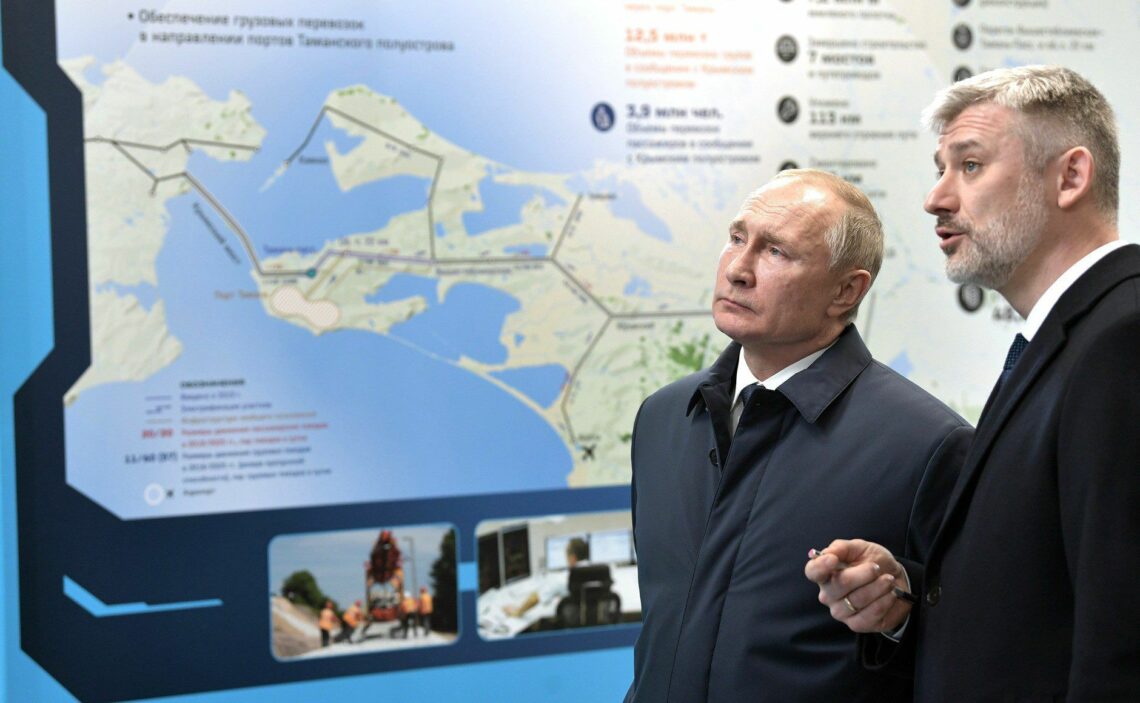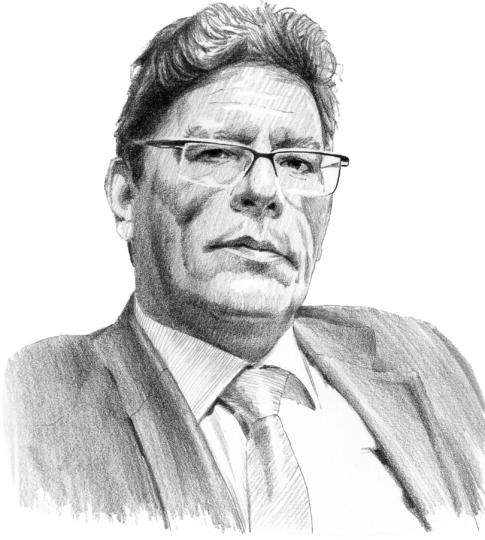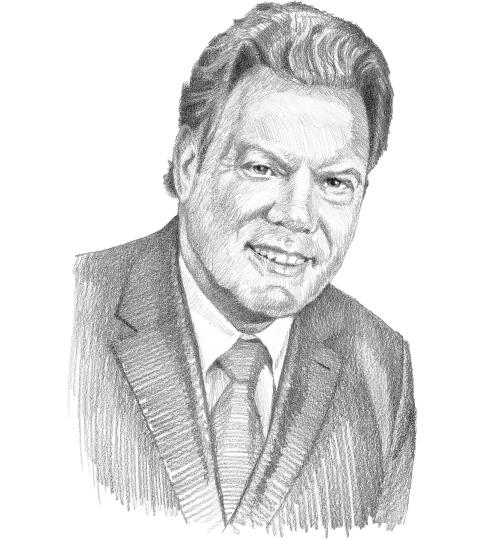The splendor and misery of Russian governance
Evaluating the efficiency of the Russian government is nearly impossible because it has no declared policy goals. Even with the conflict with Ukraine, it is unclear whether the Putin administration was pursuing specific goals or whether its decisions were entirely reactive.

In a nutshell
- Good governance implies that a government is able to achieve what it sets out to do
- Russian leaders have no declared policy goals, making accomplishments hard to judge
- Corruption and tensions with Ukraine will remain until citizens react
This new series of GIS reports examines how effectively countries are ruled and the consequences of governing systems for economies, societies and nations’ development prospects.
Is the Russian government efficient? How can one measure the efficacy of a political regime? Let us distance ourselves from the numerous works that attempt to calculate this ineffable parameter by dissolving it into variables and reassembling them into indexes. These methodologies have no practical objective; they cannot be used for political action. Common sense will be sufficient in this case.
Intended effects
According to British philosopher Bertrand Russell, the minimum touchstone of a political regime is its ability to achieve certain goals, to produce “intended effects.” This common-sense assertion begs one caveat and two questions which bear direct relevance to the Russia of today.
First, the caveat: a political regime does not and cannot have any personal goals or intentions of its own. A regime – like a system, or a state, or a government – is an abstract idea that describes a procedure between political actors, either in accordance with the rules of certain institutions or in breach of them. A political regime is efficient to the extent it ensures its actors – not necessarily all of them, but at least its dominant ones – have the ability to achieve their goals.
All kinds of intentions had been ascribed to the Russian leader over the last 20 years.
It is usually assumed that those intentions aim toward the common good. It must be so, at least in part, otherwise political power swiftly descends into violence without legitimacy, ready to be toppled as soon as possible. That is, according to St. Augustine, the only difference between “kingdoms” and “great robberies.”
The common good, however, is still defined by the competition between various political actors, with the participation of a wider circle of engaged observers and stakeholders. When there is no objective rule to measure the common good, the only way to evaluate the efficiency of a political regime is to scrutinize the goals of its dominant actors.
Facts & figures
Governance in Russia
Russia is a semi-presidential federation comprising 46 provinces, 21 republics, four autonomous okrugs, nine krais, two federal cities, and one autonomous oblast.
Executive branch
- The president (Vladimir Vladimirovich Putin, 2000- 2008 and since May 2012) is chief of state. The prime minister (Mikhail Vladimirovich Mishustin since January 2020) is head of government. Cabinet members are appointed by the president, and the prime minister is also approved by the lower house of the parliament (Duma)
- The president is directly elected by absolute majority popular vote, in two rounds if needed, for a six-year term
Legislative branch
- Russia’s parliament is bicameral. The upper house is the Federation Council. Its 170 members (two for each administrative unit) are appointed for four-year terms by the top executive and legislative officials
- The lower house, the Duma, has 450 seats. Its members serve five-year terms. Half are elected by a simple majority vote, while the other half is directly elected by proportional representation vote
Judicial branch
- The highest court is the Supreme Court of the Russian Federation. It comprises 170 members nominated by the president and appointed by the Federation Council. Subordinate courts include the Higher Arbitration Court; regional and provincial courts, Moscow and St. Petersburg city courts, and autonomous province and district courts
Putin’s will
The obvious personalist nature of the Russian political regime makes things simple, and brings us to our first question. Tell me what President Vladimir Putin wants and I will tell you whether the political regime associated with his name is efficient. The problem is, no one without direct access to Mr. Putin’s subconscious can tell us anything conclusive. (That means no one.)
All kinds of intentions had been ascribed to the Russian leader over the last 20 years. Does he want to establish a lifelong personal dictatorship? To build a stable democratic regime? To hold on to the presidency for a third term? To hand over his authority to a successor once and for all? To create a model capitalist society in Russia? To restore the Soviet Union? To pummel oligarchs? To reinforce oligarchic rule? To have Russia join NATO? To provoke a direct military conflict with NATO? To defeat terrorism? To sponsor terrorism? And so forth.
Perhaps President Putin did indeed have some of these intentions, mostly during the first years of his rule, when his trustworthiness both in the country and abroad was limitless. Nothing has concretized. Authors of such speculations project their own phobias, dreams. and interests on Mr. Putin’s enigmatic image, and judge the efficiency of the Russian political regime exclusively through the prism of these passions.
However, the actions of the Russian government are seldom evaluated against the criteria of publicly announced goals. If such intentions were declared, who in their right mind would trust the politicians’ claims and promises? The true aim of any declared policy could be quite different, or the government’s actions could be reactive and spontaneous, devoid of any underlying strategy.

For example, is the Russian political regime trying to modernize the economy and ensure economic growth? If so, the regime has been catastrophically ineffective during the last decade. Russian authorities are trying to choke off the propagation of earlier electoral ads featuring President Putin and former Prime Minister Dmitry Medvedev (president between 2008-2012), charging the bloggers who share them with “extremist action.” The contrast between the bright future announced in the late 2000s and the ever-mirthless reality of today’s Russia is scandalously evident.
Perhaps the government has no such intention, and all this talk about the imminent breakthrough to prosperity is no more than a smokescreen. Perhaps the real goal is to ensure by all means – even through stagnation – overall macroeconomic and financial stability in the context of increasingly unfavorable circumstances and mounting external pressure. If so, then the regime is efficient. In January 2015, former United States President Barack Obama stated that the Russian economy is “in tatters” because of Western sanctions. The claim had no roots in reality back then and has not become any truer since.
If the Russian political regime is planning to overcome corruption, then the result is absolutely dismal. Despite thousands of criminal cases, trials, and convictions, corruption is blooming. (Businesspeople are heard nostalgically sighing – in earnest – that “There was order in Yeltsin’s times…”) But what if that task had never been on the agenda, because its execution would have completely paralyzed Russia’s business and administrative life? What if the supreme powers are guided by the wise words of Emperor Alexander II (1856-1881), who said that “It is not difficult to rule Russia, but it is completely useless”? What if, without trying to radically modify the established modus operandi, the government is merely using anti-corruption laws selectively as a tool of discipline? This would be sensible and efficient.
Was it ever Russia’s goal to subdue and absorb Ukraine? If so, it is hard to imagine a worse fiasco.
Or was it ever the goal of Russia to subdue and absorb Ukraine? If so, it is hard to imagine a worse fiasco. The events of the last five years have created a stigma so deep that, in Ukraine, 50 years might not be enough to overcome it – maybe even 150. But it could be that there was never any strategic goal. Moscow’s actions toward Ukraine, including the Crimean outburst, could have been a chaotic set of situational reactions, a form of damage control that ultimately only increased the overall cost of the debacle. In that case, evaluating Russian governance makes no sense. One should rather assess the efficiency of the behavior of those who were the cause, victims, or witnesses of that panic attack.
Time frame
The second question is: what is a suitable time interval to evaluate the efficiency of a political regime and its actions? Sometimes Russia manages to be effective, usually through extreme, focused mobilization. Take, for example, the recently concluded construction of the Crimea Bridge, initially met with bitter skepticism from all sides. The completed project is an achievement that will permanently modify the face of the earth, like the Suez or Panama canals. The copious political and financial grime that covers all such constructions dries out and falls off. Great structures stay behind.
However, there is a counterexample as well. The Russian government was apparently determined to host the 2014 Winter Olympics, and to win the games triumphantly. The task was accomplished, and the whole world applauded Russia – but not for long. The disgrace of Russian sports and its patron, the Russian state, has become obvious since Sochi. In hindsight, those efforts were thoroughly counterproductive; not only did they fail to boost Russia’s prestige abroad, they diminished it.
Democracies and autocracies
What does this mean, not only for Russia and other autocratic regimes, but for Western democracies as well? The fate of the latter is also a source of some concern to those who evaluate the comparative efficiency of different governance models. The desire to transcend the assumption that Western democracies are, by definition, better run than other countries is understandable. They are mostly governed in an outrageous manner, and the leadership crisis in the West (as well as the leadership crisis of the West) is painfully evident.
This temptation is nothing new, though. The same phenomenon took hold during the interwar period, when Western countries were also entwined in political squabbling, economic disasters, and domestic conflicts. They were catastrophically inefficient, while their leaders were a string of nonentities. “Tomorrow belongs to me,” clamored autocrats and their followers all over Europe – with good reason. But where are they now? Graveyards are full of autocrats who used to boast of their efficiency, even more so in the last 30 years. Yet, democracies persist.
Sometimes Russia manages to be effective, usually through focused mobilization.
That is because democracies are also able to mobilize and field forceful leaders. They do so rarely and reluctantly, only when there is really no other course of action. Autocracies, on the other hand, are more or less permanently mobilized, and may appear more efficient in the short term. When this interval is over – usually quite unexpectedly – this splendor turns into misery.
Scenarios
If we agree with American sociologist Talcott Parsons that self-preservation is the raison d’etre of any social system, then autocracies are more fragile. It is difficult to imagine Brexit, President Trump’s impeachment or reelection, or the departure of German Chancellor Angela Merkel leading to radical regime and systemic changes in the U.S., the UK, or Germany. Even the French, with all their predilection for revolutions, might eventually establish a Sixth Republic – the Gilets Jaunes are already shouting something to that effect – but no more. And we say nothing of the stability of the Swiss Confederation or the Principality of Liechtenstein. Whereas in Russia, like in other modern autocracies, a stunning turn of events is not only possible, it is probable.
If democracies are inefficient, especially compared to autocracies, it is only because they can afford it. And they indulge in this state of affairs at times when they have the luxury to do so. Eventually experts and intellectuals see threats emerging and sound the alarm. But the response to a challenge only arises when the presence of danger becomes common knowledge. That is when peoples and nations wake up.
The shape of this awakening and the leaders it will put into power might not be to the liking of fussy intellectuals. But the end of democracy will only come if peoples and nations fail to wake up entirely. In that case, the very word “democracy” will lose its meaning, and there will be nothing left to salvage. After all, the Greek roots of the word mean “people” and “power.”







